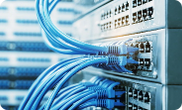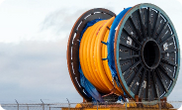What uses the most electricity in a house?
Managing your electricity bill is not an easy task at the beginning. Have you ever made some steps to reduce your energy consumption only to discover that it is not working? A simple explanation for this is that not all electrical appliances are created equal, and some consume way more energy than the others. The energy efficiency of various devices is determined based on particular rating systems in various countries. In the United States, the energy efficiency of products is determined by ENERGY STAR®, the government-backed program of EPA and DOE. Energy-efficient devices in the country are certified by ENERGY STAR®.
Want to manage your electrical bill more smartly? Then dive into our list of top four household items that use the most electricity.

4. Fridge
Depending on how you use it, your fridge can consume up to 35 percent of the energy in the household. No wonder it is so, as the fridge is a large appliance with complicated temperature settings that have to stay on all the time. A refrigerator also contains a freezer, which is itself a device that consumes a lot of power. While you cannot avoid significant energy consumption, it depends on many factors, including size, age, technical characteristics of the refrigerator, the freezer's location, and the item's placement in your house. Many households still carry fridges from the 1980s, which are inefficient to an extreme. While not everyone can buy the most energy-efficient option or downsize, it is still recommended to replace the over 15 years old devices because the amount of energy they consume is truly overwhelming. Luckily, there are more steps to take if you cannot invest in a new item right now.
- Make sure never to leave your fridge open because it uses more energy to maintain an adequate temperature.
- Make an effort to defrost your fridge regularly, as even the tiniest build-up of 0.5 cm hinders this appliance's efficiency.
- You should keep your fridge's temperature around 37 F, as it is deemed the most efficient.
- It also helps to organize your habits so that you always know what you need from the fridge and do not leave it open for long.
- Once possible, invest in an energy-efficient fridge.
3. Water Heater
According to various calculations, heating your water can take anywhere between 10 and 25 percent of your energy consumption, depending on your habits and technical characteristics of the heater.
A water heater's energy efficiency depends on its size and fuel type. However, the good news is that the water heater's energy efficiency depends on your habits much more than any other device. Here are some tips to follow:
- Keep the thermostat's temperature at 120 F. This is the optimal energy-efficient temperature, and you usually just do not need more. Moreover, keeping temperatures that are too high can even be too dangerous for some older heaters.
- Washing your clothes and doing dishes at lower temperatures than you are used to is also a huge help to your electricity bill.
- Try not to take a bath instead of a shower unless you need to relax this one time as a single hot bath takes a whopping 39 gallons of water. Also, take shorter showers than you are typically used to to save even more on your bill.
- Insulate. If you have an older, non-energy efficient water heater, insulate it to prevent energy loss. Hot water pipes are also worth insulating, regardless of the particular type of water heater.
2. Air Conditioner
Suppose you try to investigate your energy use and what appliances use the most electricity in a household, and it turns out that you tend to overpay on a hot summer. In that case, the air conditioner is the most likely to blame. The percentage of the bill that the air conditioner is responsible for tends to change depending on the season, but it can reach a whopping 40% in some cases.
Here are some tips to minimize the damage that the air conditioner has on your bill:
- Have your air conditioner checked by a professional at least one time a year. The energy efficiency depends on whether it works properly, and the issues like improper fluid levels and charge errors occur all the time. The professional can also determine whether your air conditioner needs insulation, as you are unlikely to figure it out on your own. Replacing filters regularly is another factor of air conditioner maintenance.
- Try not to condition the rooms in the house that you don't use regularly.
- If the temperature outside and your tolerance of them allow it, try to use the air conditioner only during the hottest part of the day.
- Invest in a thermostat that automatically changes the temperature of the air conditioner as the temperature outside changes.
- Vacuum your air conditioner regularly to prevent the dust from settling in a vent.
1. Heating System
While it is surely not a surprise, and you may already know that heating your house takes up the majority of your electricity bill, it is something worth reminding. Heating can take up approximately 50 percent of your entire energy use. The efficiency of your particular heater and the type that you use contribute to the final outcome. For instance, the electric furnace can take 50 percent more energy compared to the heat pump. While spending on heating your house is unavoidable, there are several tips that are likely to make it easier on your wallet.
Invest in a programmable thermostat that regulates the heating both manually and automatically. Once you buy the thermostat, set it at the lowest temperature that you find comfortable. There is no need to rush yourself into anything, you can gradually decrease the temperature to an amount that you still find comfortable. The temperature of 66F- 68F is generally considered to be optimal.
- Insulate any zone where the heat may escape your house, including windows and doors.
- Replace filters on the heater when it is due.
- Turn your heater off when you leave the house, and do not hit the rooms that you do not use.


















